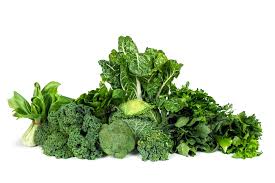All About Lactose Intolerance
We received the following question through our Ask-A-Dietitian platform:
Getting enough calcium is a concern for women as we age, but some of us are unable to digest lactose, which limits the dairy products we can consume. What are non-dairy sources of calcium, and can one eat enough of them each day to meet the recommended daily amounts?
Thanks for your question. You are absolutely right that adequate calcium intake when we are young can help delay the onset of osteoporosis in later years. We keep building bone until our early 20s, when we reach maximum bone mineral density. Calcium is also a component of strong teeth.
What is lactose intolerance?
Lactose intolerance means that we aren’t able to break down the milk sugar lactose because we don’t have enough of the enzyme lactase. Undigested lactose will just go through the digestive system, and as a sugar, it draws water into the gut which can result in symptoms like gas and bloating.
People who suffer from lactose intolerance sometimes find that they do not have to exclude dairy products completely and can tolerate a certain amount of dairy. For example, most people can tolerate about 12g of lactose (the equivalent of 1 cup of milk), especially when eaten along with other foods and eaten in small amounts throughout the day. Some dairy products have more lactose than others. For example, yogurt has less lactose because much of the lactose is converted to lactic acid during the fermentation process. You can also buy lactose-free milk in many stores.

To determine how much dairy that you can tolerate, it can be helpful to keep a food and symptom journal. In this journal you would keep a record of the amount and type of dairy you consume, and which other foods that you consume the dairy with.You would also note the time of day that you are consuming the dairy, and your symptoms afterwards. This journal will help guide you towards determining the type, amount and frequency of dairy that you can actually tolerate.

Important nutrients to consider
Adults aged 19-50 require 400-1000mg calcium per day. Milk and milk products are a quick and easy source of calcium, however, there are other sources that can definitely help you to meet your requirements as well. Milk alternatives such as soy beverages are fortified with calcium. In addition, foods such as tofu, fish and green vegetables also contain calcium that is cumulative throughout the day and count towards the total daily intake. Eating a variety of these foods can help you meet your calcium requirement.

When assessing foods for calcium content you can refer to the Nutrition Facts Table. Calcium is identified here and a % Daily Value (DV) is listed beside it. The higher the %DV, the more calcium the product contains. 15%DV or higher represents a good source of calcium!
Adults age 19-50 also require 600IU/day of Vitamin D. It can be difficult to get enough vitamin D through diet, especially if you are not able to drink milk. During the summer months this is less of a problem as we get most of our vitamin D from the sun, however, during a long Canadian winter it can be difficult to get the recommended amount of vitamin D.Some foods like plant-based milks, margarine and juice are fortified with vitamin D, but even so a supplement might be helpful. Magnesium also helps you to maintain strong bones. However, additional magnesium does not provide extra health benefits if you are getting enough in your diet. You can read more about magnesium here: http://www.unlockfood.ca/en/Articles/Vitamins-and-Minerals/What-you-need-to-know-about-magnesium.aspx#.VnsMDRorKRs
If you feel that you are not getting enough calcium or vitamin D in your diet, you may wish to speak to a health care professional about whether supplementation is right for you.
Do you have a nutrition-related question? Email AskADietitian@carleton.ca for an answer!